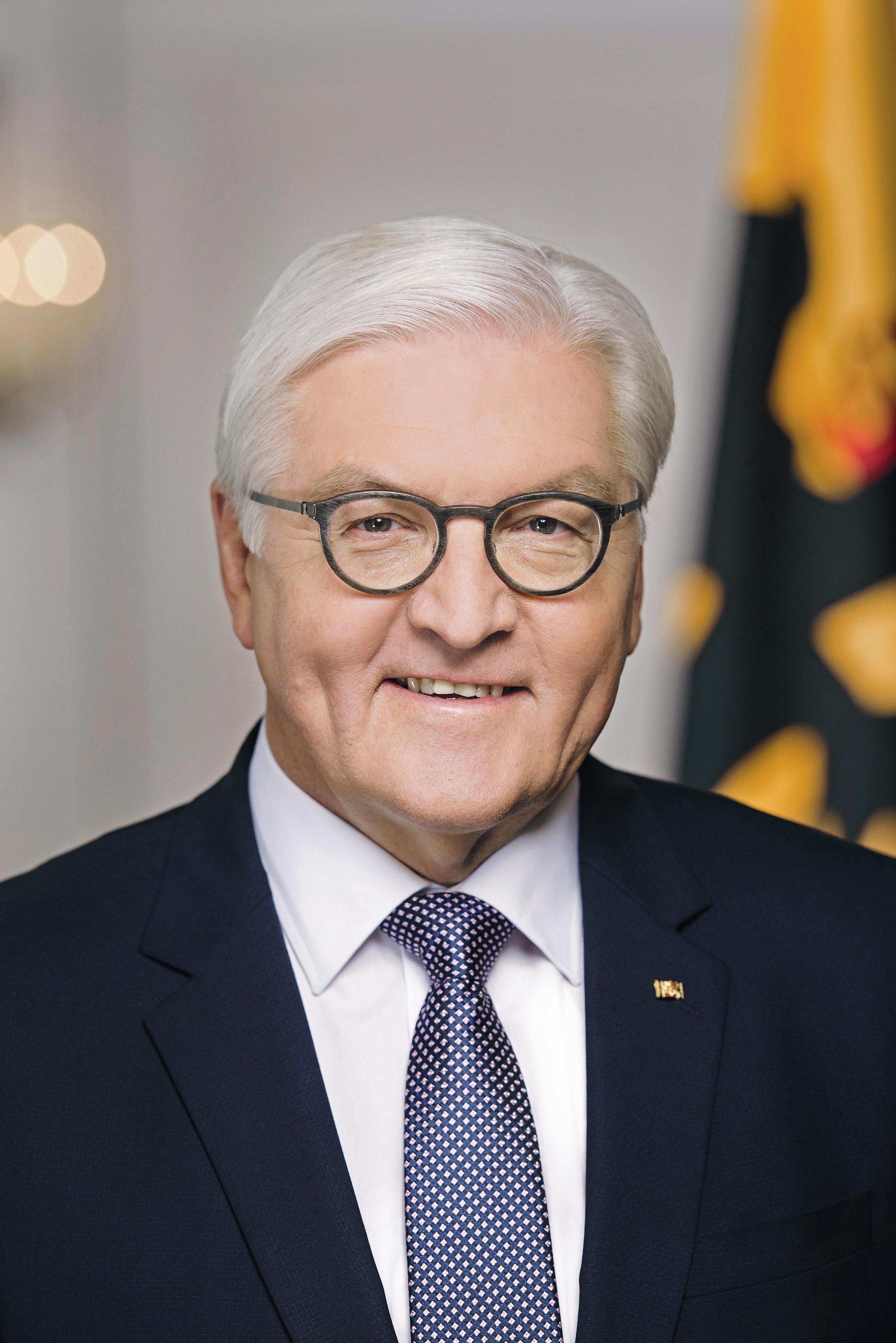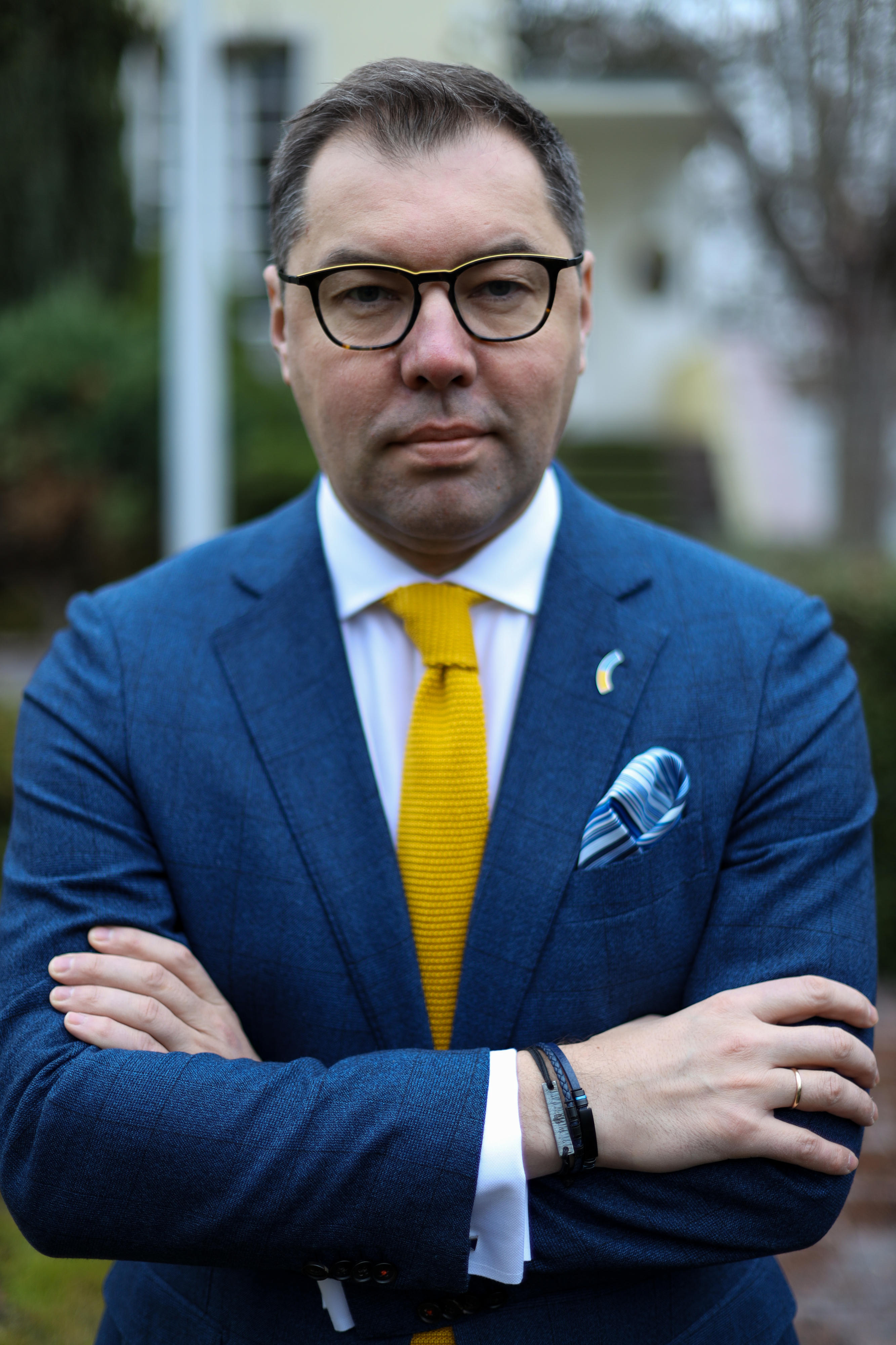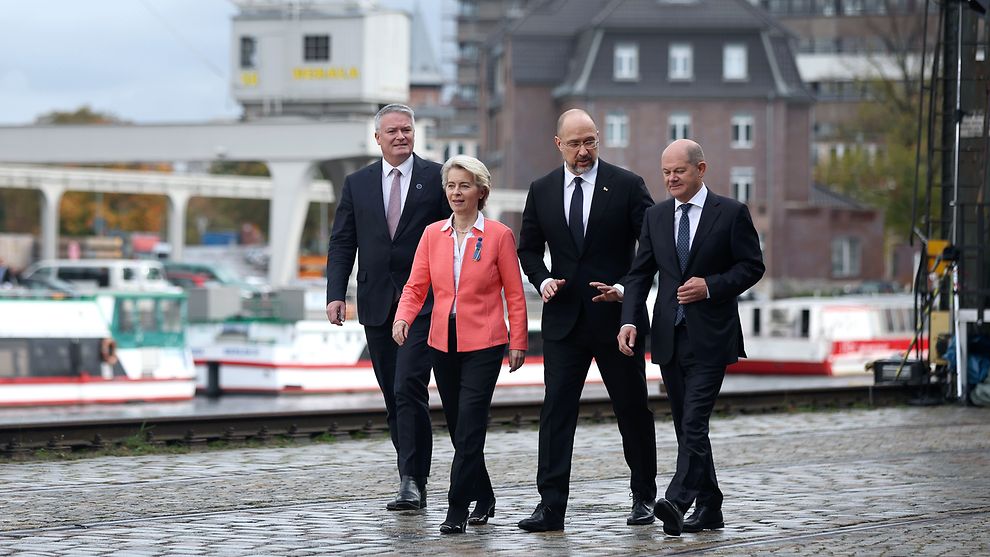Jointly supporting the reconstruction
The overall aim of the Platform is to strengthen the German contribution to the reconstruction of Ukraine. The intention is to help increase the transparency, efficiency and effectiveness of initiatives to support the reconstruction by providing a platform for networking and expert exchange between the private sector, municipalities, and organisations from civil society and the academic world. Information about advisory services and about possibilities for cooperation and support is gathered together in one place. The German government’s engagement in this context builds on long-established relationships between Germany and Ukraine, and on the reconstruction efforts being undertaken by the Ukrainian government and the donor community.
The platform is meant exclusively as a space for technical and professional exchange on the reconstruction in Ukraine. All decisions relating to funding and to the question of which initiatives will receive financial support are made completely independently of the platform under the framework of existing support structures. Neither is the platform intended to be used to group together or coordinate offers of assistance or donations for immediate emergency assistance – there are other dedicated structures for that purpose.
Starting to make plans before the end of the war
The German government is supporting the efforts of the World Bank to carry out a Rapid Damage and Needs Assessment (External link) (RDNA) jointly with the European Commission and the Ukrainian government. These kinds of assessments of the damage and losses caused by Russia’s war of aggression will help determine the priorities and needs for the economic and social reconstruction.
The goal for the reconstruction is to restore livelihoods in the long term and return to stable living circumstances. To mitigate the direct impacts of Russia’s attack against Ukraine, it is important to ensure that the Ukrainian population has shelter, energy and water immediately. Quick provision of funding to maintain public sector functions is also an urgent priority.
In order for emergency relief and long-term reconstruction to be well integrated with each other, preparations for the reconstruction need to start now and be done in parallel. Besides restoring the infrastructure that has been destroyed and keeping vital services like healthcare up and running, it will also be necessary to alleviate the economic, social and environmental impacts of the war and then overcome them in the long term. To do that, a socially, economically and environmentally sustainable approach that takes all the various needs into account will be needed.
International engagement for the reconstruction
The forthcoming reconstruction and the implementation of necessary reforms in Ukraine call for efforts that are well coordinated internationally. Short-term support must go hand in hand with medium- and long-term reconstruction.
At the Ukraine Recovery Conference (External link) in July 2022, the Lugano Declaration (External link) – with its declared principles of partnership, reform focus, transparency, accountability and rule of law, democratic participation, multi-stakeholder engagement, gender equality and inclusion, and sustainability – was adopted, creating a political framework for the recovery of Ukraine. The URC2024 in Berlin took place under the motto “United in defence. United in recovery. Stronger together.” You can find the results of the conference here (External link).
In October 2022, the governments of the leading industrial nations assured Ukraine of their lasting support in a public G7 Statement on Ukraine (External link). The German Presidency of the G7 and the European Commission convened an International Expert Conference on the Recovery of Ukraine (External link) in Berlin on 25 October 2022. Together with Ukraine, the G7 countries agreed to set up an international platform for the donor coordination of the recovery of Ukraine.
Expert conference under Germany’s G7 Presidency on 25 October 2022: Then Federal Chancellor Olaf Scholz and EU President Ursula von der Leyen were joined in Berlin by, among others, the then Prime Minister of Ukraine Denys Schmyhal (2nd from the right) and OECD Secretary-General Mathias Cormann (left).
Multi-agency donor coordination platform
Via the international donor platform, existing support mechanisms are brought together – for example, support for the energy infrastructure, short-term liquidity assistance and preparations for the reconstruction. This will ensure that the engagement by the international community for the recovery of Ukraine is broad and well-coordinated. It is intended that support coordinated via the donor platform will strengthen Ukraine in implementing its reform agenda for convergence with the EU and specifically encourage private sector involvement in the reconstruction. You can find the latest information on the Multi-agency donor coordination platform here (External link).
As at: 28.08.2024



